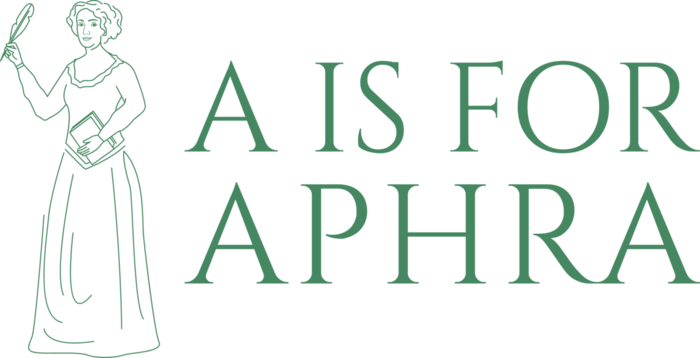Timeline
1640
The Beginning
Eafry Johnson is baptised December 14th 1640 in Harbledown, just outside of Canterbury. Her parents are Bartholomew and Elizabeth Johnson.
Her name will variously be spelt as Eaffrey, Aphara, Aphra and in other ways throughout her life.

1640
Aphra's Parents
In the early 1640s, Aphra’s mother was employed as a wet nurse to a rich Canterbury family – the Culpeppers. Aphra’s father begins as a small land-owner/farmer but later becomes a barber working in Canterbury.
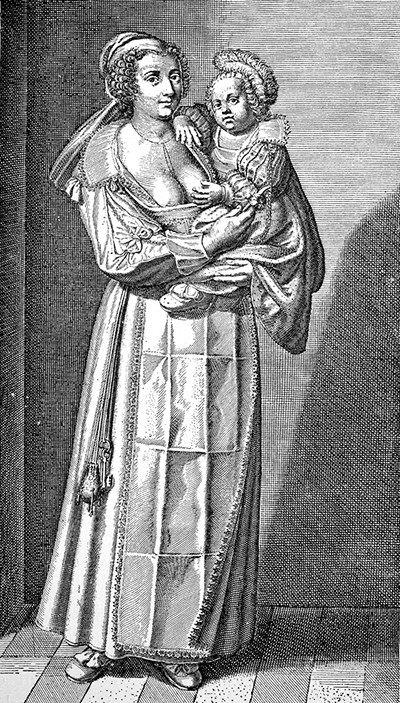
© Bildagentur-online : UIG
1642
English Civil War
The English Civil War begins in 1642, pitting Roundheads (supporters of the Parliament of English) again Cavaliers (the supporters of King Charles I and later his son, King Charles II).
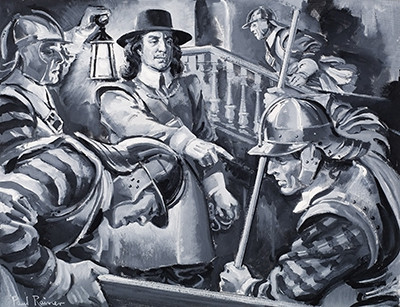
© Look and Learn : Bridgeman Images
1649
Charles I is Executed
Charles I is executed on 30th January 1649.
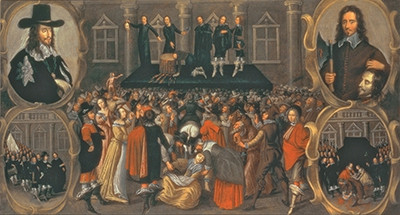
© Bridgeman Images
1655
The Johnson family leave Canterbury
The Johnson family leave Canterbury and move to London in the mid 1650s.
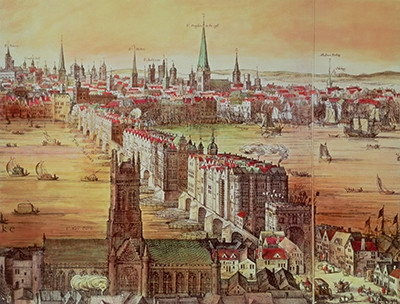
© Bridgeman Images
1657
Aphra Johnson is Engaged
In August 1657, 16-year-old Aphra Johnson is engaged to a man named John Halse. The Banns for their marriage are read three times at St. Botolph Aldgate, the parish both of them are living in at the time. There is (as yet) no evidence for the actual marriage taking place.
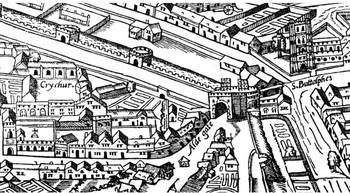
1660
Charles II Returns to England
In May 1660, Charles II returns to England and the English Monarchy is restored.

© National Portrait Gallery
1660
The Cockpit Theatre in London hosts a public performance
19th November 1660, the Cockpit Theatre in London hosts a public performance – The closure of London theatres had been in place since 1642.

© Government Art Collection
1660
Margaret Hughes Steps onto the London Stage
8th December 1660. Margaret Hughes, the first professional actress in England steps onto the London stage, playing Shakespeare’s Desdamona in Othello with The King’s Company.
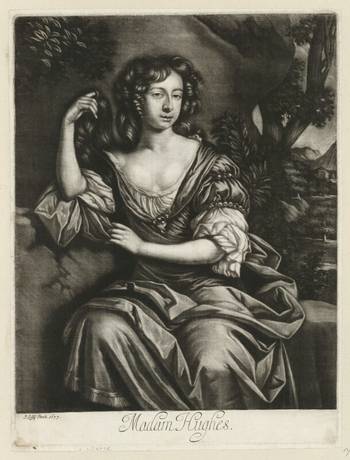
© National Portrait Gallery
1663
Aphra Sails to Suriname
Around 1663 Aphra sails to Suriname with members of her family, possibly as a spy, possibly with her father who is to be employed to administer the colony. Her father dies at sea on the way there.

© Archives Charmet : Bridgeman Images
1664
Aphra Returns to England
1664-1665 – Aphra Behn returns to England, possibly via America, having married a Johannis (John) Behn. It seems he dies soon afterwards.

© Shutterstock
1664
Outbreak of the Great Plague
December 1664 sees the outbreak of the Great Plague in London.
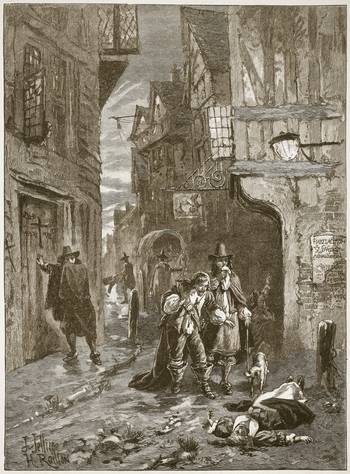
© The Stapleton Collection : Bridgeman Images
1666
Aphra is Employed as a Spy by Charles II
July 1666, Aphra Behn is employed as a spy by Charles II. She is sent to Antwerp to seek out information on the Dutch from one of her former lovers.
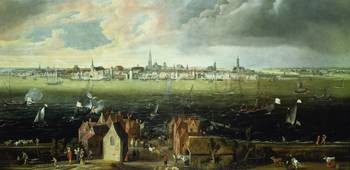
© Bridgeman Images
1666
September 1666: The Great Fire of London
After starting in Thomas Fariner's bake-house on Pudding Lane in the early hours of Sunday 2nd September, the Great Fire of London destroyed the old Medieval city that Aphra Behn knew and raged for 5 days burning down an estimated 13,000 houses and 87 churches. Over 70,000 people were left homeless.

© Society of Antiquaries of London
1667
Aphra Returns to England
May 1667 Aphra Behn returns to England.

© Bequest of Arthur D. Schlechter : Bridgeman Images
1667
John Milton
Paradise Lost by John Milton is published.

© National Portrait Gallery
1668
John Dryden is made Poet Laureate
On 13th April 1688, John Dryden is made Poet Laureate.
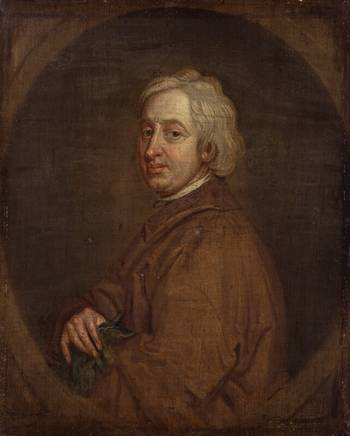
© National Portrait Gallery
1670
Aphra Behn’s play is staged
Aphra Behn’s play The Forc’d Marriage, is staged by The Duke’s Company in 1670.
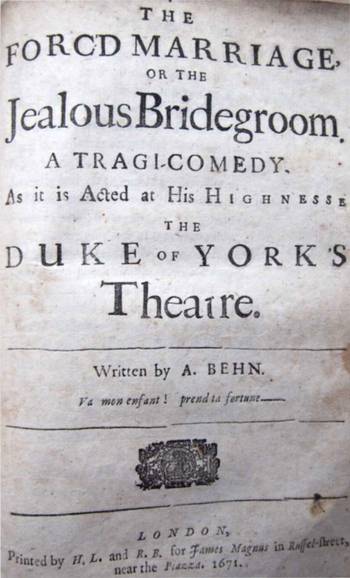
1670
Aphra Behn writes and stages at least 10 plays in London
Between 1670 and 1680 Aphra Behn writes and stages at least 10 plays in London, including what remains her most famous play today, The Rover. Over the years that follow there will be at least another eight plays alongside numerous translations and poems.
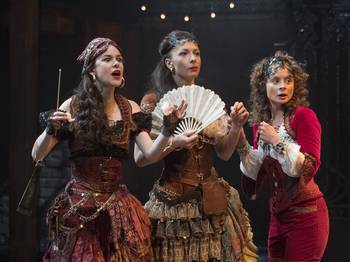
© Alastair Muir : Shutterstock
1680
The Earl of Rochester dies
On 26th July 1680 Aphra Behn’s friend, the great libertine, the Earl of Rochester dies. She writes an elegy on his death.
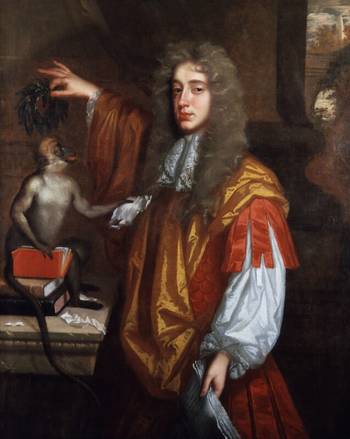
© National Portrait Gallery
1684
Aphra Behn likely travels to Paris
In 1684 Aphra Behn likely travels to Paris, France and watches Arlequin Empereur Dans La Lune by Fantouville. Behn later bases her play The Emperor of the Moon on Fantoville. The play is incredibly popular and is revived regularly in London until the 1740s.

© Shutterstock
1685
Charles II dies
Charles II dies on 6th February 1685 and is succeeded by his brother, James II.

© National Portrait Gallery
1688
Aphra Behn’s novel Oroonoko is published
In 1688 Aphra Behn’s novel Oroonoko is published, alongside The Fair Jilt and Agnes de Castro. Any one of these titles can make claim to be the first novel in English.

© Look and Learn
1688
James II flees London
11 December 1688. James II flees London. William of Orange becomes de facto King.

© National Portrait Gallery
1689
Aphra Behn dies
16 April 1689 Aphra Behn dies, following a botched operation. Her health had been failing for several years. She is buried in Westminster Abbey, London.
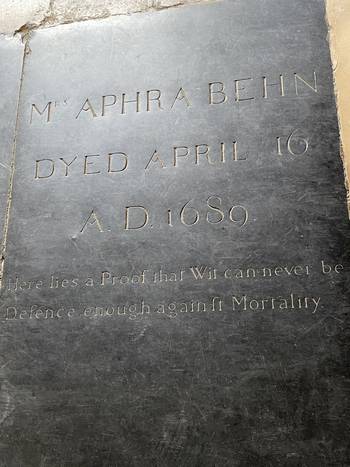
1689
The Widow Ranter performed after Aphra's death
1689 sees Aphra Behn’s play, The Widow Ranter performed after her death. This is the first surviving play to be set in North America.
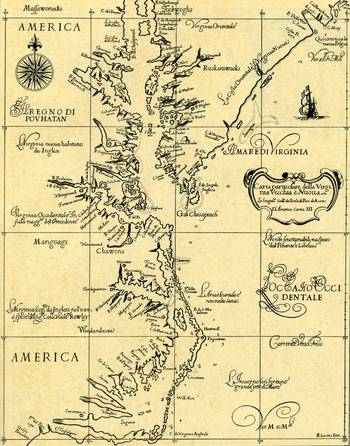
© Lebrecht History
1692
John Hoyle was stabbed to death
May 1692. Only three years after Aphra Behn's death, a man reputed to be on-off lover, John Hoyle, was stabbed to death after a brawl over politics that began at the Young Devil Tavern on Fleet Street and ended with John Hoyle stabbed with a sword outside Temple Gate. Letters between Behn and Hoyle suggested that their romance and tumultuous affair lasted (probably) longer than any other romantic relationship of Behn's life. However these letters are likely to be completely fictional, made up after Behn's death to scandalise and sell well! The truth about Behn's real relationship (if any) with Hoyle is unknown.
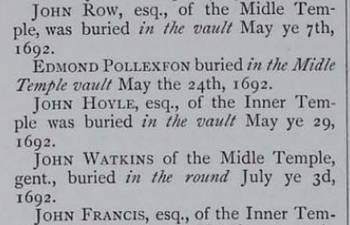
1830
Oroonoko used by the slavery abolitionist movement
Oroonoko, which has been repeatedly reprinted since Aphra Behn’s death becomes a major text cited and used by the slavery abolitionist movement.
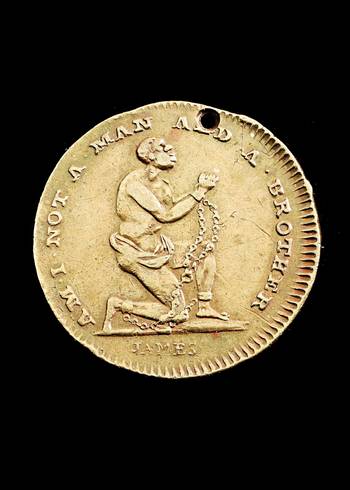
© Michael Graham-Stewart : Bridgeman Images
1929
Virginia Woolf writes in A Room of One’s Own
In 1929, Virginia Woolf writes in A Room of One’s Own that ‘All women together ought to let flowers fall upon the tomb of Aphra Behn, for it was she who earned them the right to speak their minds.’
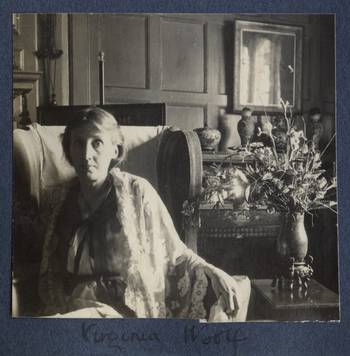
© National Portrait Gallery
2021
Campaign to get a statue of Aphra Behn is launched
2021, the campaign to finally get a statue of Aphra Behn put up in England is launched.


